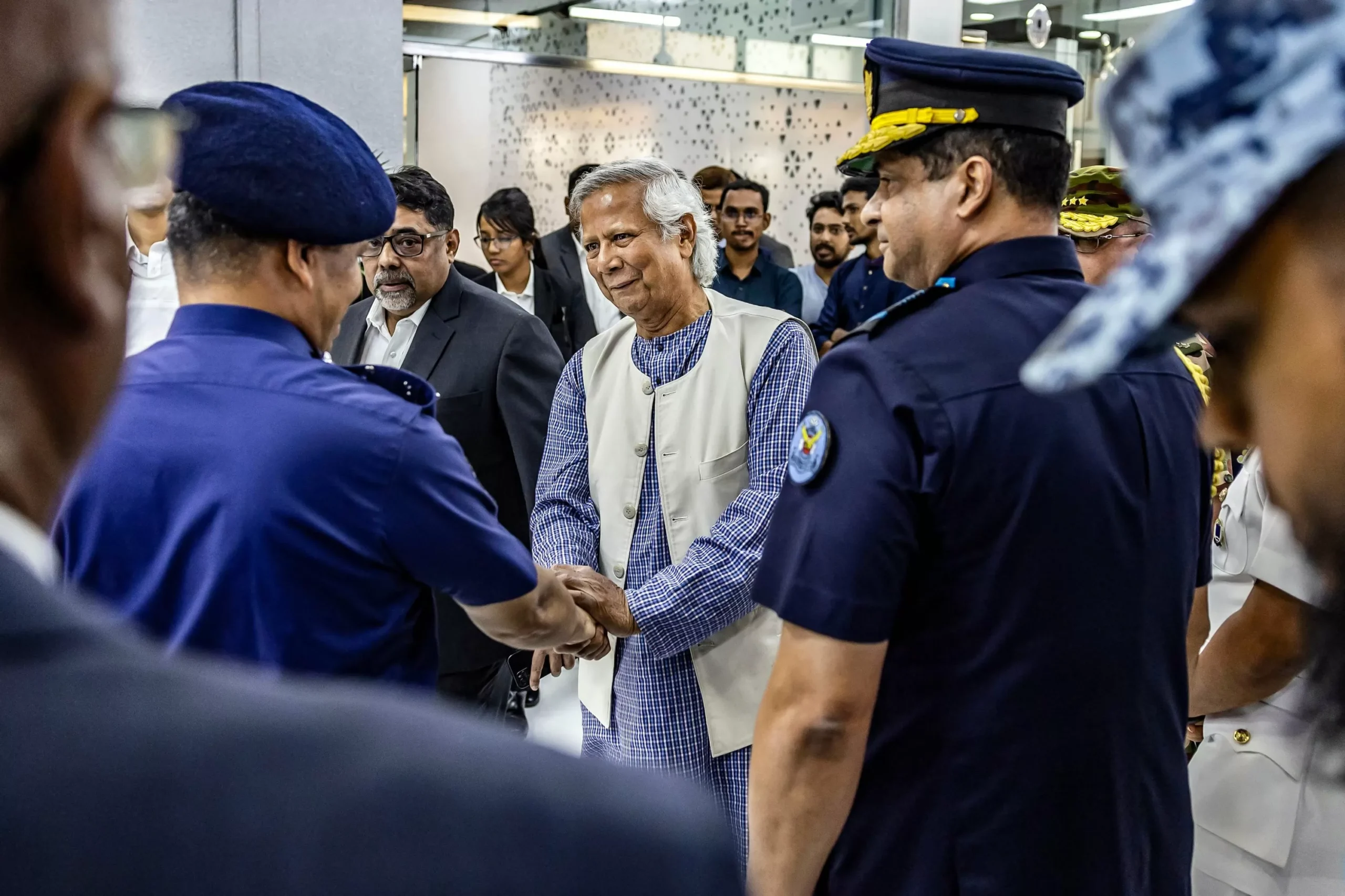Nobel-winning economist Muhammad Yunus has been sworn in as the leader of the transitional government in Bangladesh, following the resignation of Prime Minister Sheikh Hasina’s government over allegations of election fraud. This historic moment marks a new chapter in the country’s political landscape and has sparked hope and optimism among the people of Bangladesh.
Yunus, who is widely known as the “banker to the poor,” is a renowned economist and social entrepreneur who has dedicated his life to eradicating poverty through microfinance. His pioneering work with the Grameen Bank has helped millions of people, particularly women, in Bangladesh and around the world to break the cycle of poverty and become financially independent.
The decision to appoint Yunus as the leader of the transitional government was met with widespread support and enthusiasm from the people of Bangladesh. Many see him as a symbol of hope and a beacon of change in a country that has been plagued by political instability and corruption for decades.
In his first address as the leader of the transitional government, Yunus emphasized the need for unity and cooperation among all political parties to move the country forward. He also stressed the importance of good governance and transparency in order to restore the faith of the people in the government.
Yunus’ appointment has been hailed by leaders and organizations around the world. United Nations Secretary-General Antonio Guterres congratulated Yunus on his new role and expressed his confidence in his ability to lead the country towards a brighter future. The World Bank also praised the decision, stating that Yunus’ expertise and experience will be invaluable in addressing the economic challenges facing Bangladesh.
The 78-year-old economist has a long history of advocating for social and economic development in Bangladesh. In 1976, he founded the Grameen Bank, which offers small loans to the poor without requiring collateral. This revolutionary concept of microfinance has helped lift millions of people out of poverty and has been replicated in many countries around the world.
Yunus’ commitment to social entrepreneurship and poverty alleviation has earned him numerous accolades, including the Nobel Peace Prize in 2006. He has also been recognized by the United Nations, receiving the Presidential Medal of Freedom in 2009 for his efforts to combat poverty and promote economic and social development.
As the leader of the transitional government, Yunus has a challenging task ahead of him. He will have to navigate through a complex political landscape and work towards rebuilding the country’s economy, which has been severely impacted by the COVID-19 pandemic. However, his track record of success and his unwavering determination to serve the people of Bangladesh make him the ideal candidate for this role.
Yunus’ appointment has also brought a sense of unity and hope among the people of Bangladesh. Many see him as a unifying figure who can bridge the gap between different political parties and bring about much-needed change in the country. His vision for a more inclusive and prosperous Bangladesh has struck a chord with the people, who are eagerly looking forward to a brighter future under his leadership.
In his first few days in office, Yunus has wasted no time in getting to work. He has already met with leaders from different political parties to discuss the way forward and has promised to work towards creating a more inclusive and transparent government. He has also reached out to the international community to seek their support and cooperation in rebuilding the country’s economy.
The appointment of Muhammad Yunus as the leader of the transitional government in Bangladesh is a significant step towards a more stable and prosperous future for the country. His leadership and expertise will be crucial in addressing the challenges facing Bangladesh and in paving the way for a better tomorrow. The people of Bangladesh are confident that under his guidance, the country will emerge stronger and more united than ever before.





![Complete BritRail Pass Guide [Types, How to Use It, Pros + Cons]](https://inside-news.uk/wp-content/uploads/2025/06/00221EB4-BCA2-4DBB-6CD4-83DBC37D71FA-120x86.webp)












